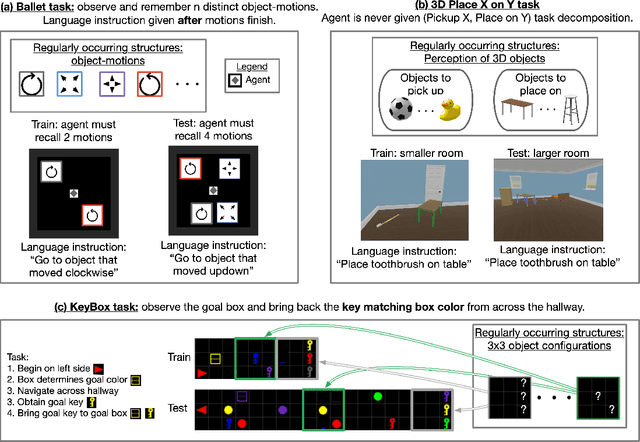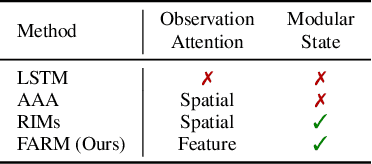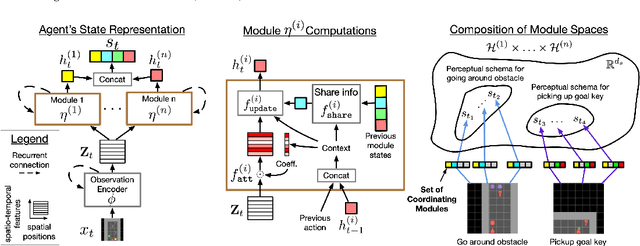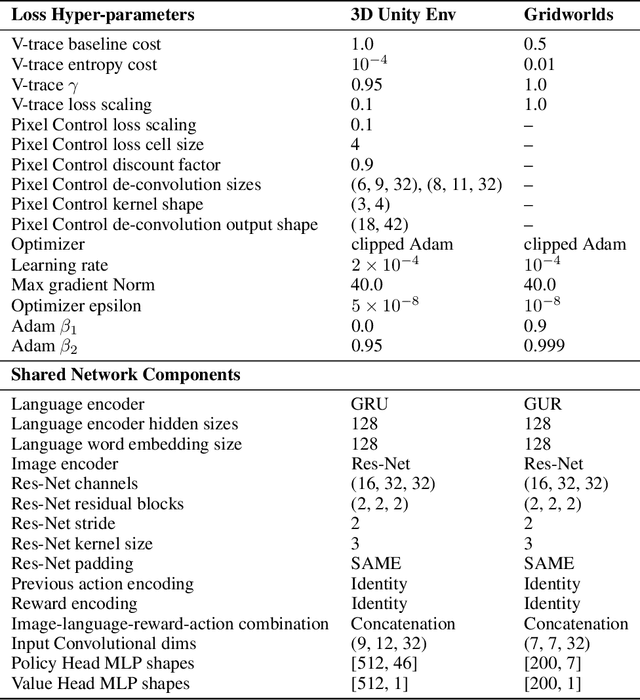Feature-Attending Recurrent Modules for Generalization in Reinforcement Learning
Paper and Code
Dec 15, 2021



Deep reinforcement learning (Deep RL) has recently seen significant progress in developing algorithms for generalization. However, most algorithms target a single type of generalization setting. In this work, we study generalization across three disparate task structures: (a) tasks composed of spatial and temporal compositions of regularly occurring object motions; (b) tasks composed of active perception of and navigation towards regularly occurring 3D objects; and (c) tasks composed of remembering goal-information over sequences of regularly occurring object-configurations. These diverse task structures all share an underlying idea of compositionality: task completion always involves combining recurring segments of task-oriented perception and behavior. We hypothesize that an agent can generalize within a task structure if it can discover representations that capture these recurring task-segments. For our tasks, this corresponds to representations for recognizing individual object motions, for navigation towards 3D objects, and for navigating through object-configurations. Taking inspiration from cognitive science, we term representations for recurring segments of an agent's experience, "perceptual schemas". We propose Feature Attending Recurrent Modules (FARM), which learns a state representation where perceptual schemas are distributed across multiple, relatively small recurrent modules. We compare FARM to recurrent architectures that leverage spatial attention, which reduces observation features to a weighted average over spatial positions. Our experiments indicate that our feature-attention mechanism better enables FARM to generalize across the diverse object-centric domains we study.
 Add to Chrome
Add to Chrome Add to Firefox
Add to Firefox Add to Edge
Add to Edge